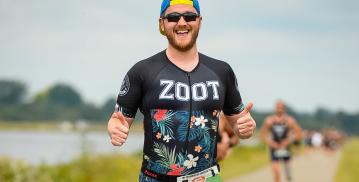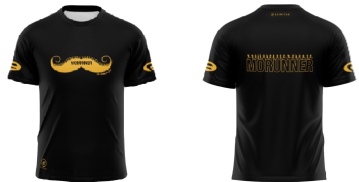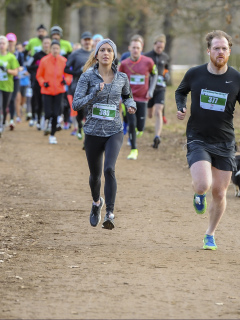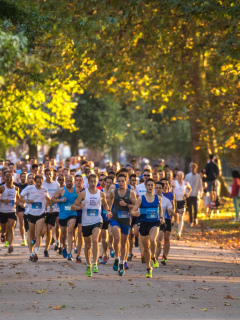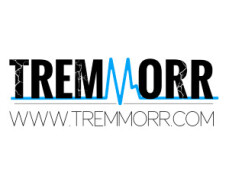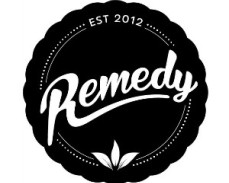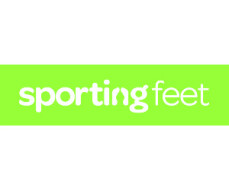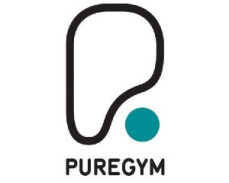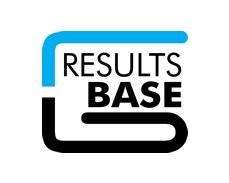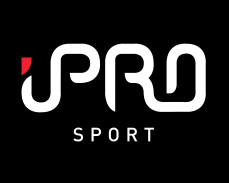May 09, 2019
Health & Wellbeing
By Fix Events
Hydration
Get It Right
So now we know it’s just as bad to over hydrate as to be de-hydrated and also the signs and symptoms of being both, how do we make sure we get it right?
Like most things in life and sport practice makes perfect, make sure in your training for a race you develop and tweak your hydration strategy so that come the morning of the race you know what to drink and when.
Sports Drinks
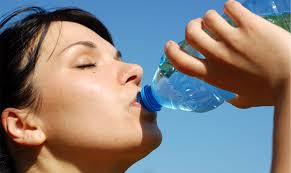
This sadly is a whole world of confusing mixed messages which can either really help you or have you running to the toilet depending on whether you get it right.
Most brands will tell you they will do lots for you as part of their marketing strategy, what’s really important is how they react to your gut and therefore performance. Some people use sports drinks and they agree with them, some people can’t stand the taste of the sweet sticky liquid and makes them sick. What is really important is what it contains, and do we really need it for the length of race / run we are doing.
As runners we all lose certain important fuels and nutrients during the process of burning energy stored in the body during running. As it pretty hard to replace the things we need through food sources that require chewing and digesting over longer periods of time, using sports drinks can be a way of taking on energy and nutrients, and more importantly having those absorbed quickly into our bodies so that we keep on performing.
As we have said, some people don’t agree with sports drinks and use alternatives like gels, water with added nutrients like electrolytes, sodium etc.
As a running coach I see people taking on board huge amounts of sports drinks or carb sources like gels etc. BEFORE or during a very short race (5k) fast (10k)
This simply is crazy, your body doesn’t require more energy found in such products until approximately 40 mins into a run, therefore simply “preloading” on sports drinks either before or during this time frame will only lead to over hydration issues and a build of GI carbs in the body which if not used are stored as fatty tissue.
Just because there is a “drinks” station with the race sponsored sports drink brand available does not mean you have to drink it, have your own plan and stick to it.
What to look out for on the label
Generally as a rule the higher carbohydrate levels or sugar levels (energy) the longer the absorption rate (time it will take to pass through the walls of the intestine and be useable as a fuel source)
You will see people coming towards the end of a race / run and taking on board a lot of energy drinks / gels etc… In actual fact these are so high in carbs / sugar that by the time the body is able to process and use all that they will probably at the finish ! In actual fact you should use time rather than distance as your indicator of time to re-fuel so it’s ready for your body to use when you need it, but that is a whole different section.
You need to see the word ISOTONIC somewhere on a sports drink, this purely means that it about as fast as you’re going to get for carb / sugar to be absorbed by the body. Water is the quickest to be absorbed, fruit juice the worst and then Isotonic drinks somewhere in between, so you want your sports drink to be ISOTONIC.
You need to see things like Electrolytes, Potassium and Sodium which are all nutrients stored in the body and lost during sweating and passing urine. An intake of all three will not only replenish your lost stores but promote absorption rates in the gut of carbs and reduce the rate of urine production.
Ideally you need sports drinks or at least the carbs / sugars / nutrients they provide mixed watered down so that they can be absorbed quickly.
Before
Depending on:
-Current Hydration level
-Weather Conditions
-Session / Race / Run Type and Length
You should always hydrate with WATER not sports drinks. Take gentle sips at regular intervals and not large intakes to allow the body to absorb and process correctly rather than getting the feeling of “full of liquid”
If you need to hydrate, start approx. one hour before the start of the activity and not before as this will pass through system and lead to passing of urine, not always easily available before a race ! Take into account using the toilet and passing urine and stools before a race / run into your hydration strategy, rather go before then need ten mins into a run, you plan your eating strategy with the “ don’t eat much 60-90 mins” before rule so why not plan for the hydration levels too.
Remember too much can be a problem as well as too little so don’t get nervous and start guzzling water to ease the race pressure as you watch your fellow runners do the same.
During
Depending On:
- Current hydration level
- Race length
- Pre-determined race strategy, including water stations location knowledge
- Weather
- Exertion Level / Fluids lost through sweat
So this should have all been discussed with run-buddy and worked out prior to the run / race and you should go into the day knowing what you’re drinking and when.
You will be surprised to see just how many people are either desperate for the next water station or drink whatever is handed to them and consume it all thinking it will get them through the race / run.
If the race is longer in distance or you will be running for more than approx. 40 mins you will need to start replenishing your fuel levels needed to produce energy. This can be in the form of isotonic sports drinks, energy gels or other forms of GI carbs like “choc blocs” for example other energy chews / sweet products are available.
These will take approx. 5-10 mins to be absorbed and be ready to be used as fuel, therefore at the first signs of “real” fatigue which should be approx. 40 mins and not too late when you’re really struggling. Fuelling the body using hydration methods needs to be done prior to fatigue not during.
Never run with a water bottle in your hand, if you need hydration during your run and it’s a race then look beforehand at the water stations available, at what mile markers they are located at and whether you’re going to need each one. If it’s not a race or it’s a race that involves longer distances and therefore self-supported you need to invest in a bladder pack which be carried on your pack and you can mix your own levels of water and electrolytes up beforehand.
You need to aim to finish the race slightly de-hydrated, meaning if you need to keep topping the fluid levels up, do so, but not to the levels of over hydration which will lose nutrients and have a negative effect. Speak with your run-buddy coach about your requirements for your run / race and together you will work out the correct fluid intake plan. Your fluids consumed should always be ones you’ve used in training and practised with, so if you always use “Lucozade” mid race and then on the day you get given “Gatorade” at the drinks station this may have a negative effect. Stick with what you know; learn what’s right for your body and how quickly your process fluids and energy so that you can replicate this during runs.
If you had planned on taking water on board at set times, either mile markers or not till afterwards and for some reason one of the variables in the list changes mid run / race i.e sun comes out unexpectedly ( it is Britain ) or your flying along faster than you thought, you will have to put the hydration strategy back into the decision maker again and come up with a plan to drink sooner than thought or more regularly. Taking more on board at one time will not work, it will only serve to make you slosh about and your body won’t be able to process it as properly. If you need to alter the hydration plan, change the frequency, type or immediacy of fluids rather than a vast amount at once.
After
Depending On:
- Exertion Levels during run / race
- Weather
- Current Hydration Level
After you are finished working out, water or diluted sports drink is not the best choice for your recovery needs. Water and diluted sports drinks do not contain enough of the sugars and electrolytes that your body needs in order to bring itself back into balance.
In addition, because water or highly diluted drinks are rapidly absorbed into the blood stream, consuming high quantities results in a rise in plasma volume (in non technical terms, this means your body is oversaturated with water). This rapid absorption leads to a further imbalance of electrolytes and frequent bathroom stops, which will only increase fluid loss and decrease your desire to drink.
Your best choice after a workout is a drink that contains a good amount of sugars, electrolytes and possibly some protein. Scientific testing has consistently shown that drinking a beverage that contains a 4 to 1 ratio of carbohydrates to protein is optimal for recovery. Therefore, at the very least, you should be drinking a sports drink after you exercise to help ignite the recovery process. Consuming one with protein will also help speed things along.

